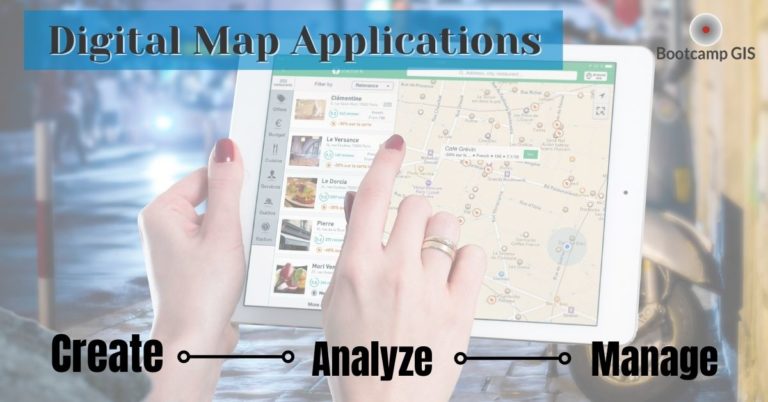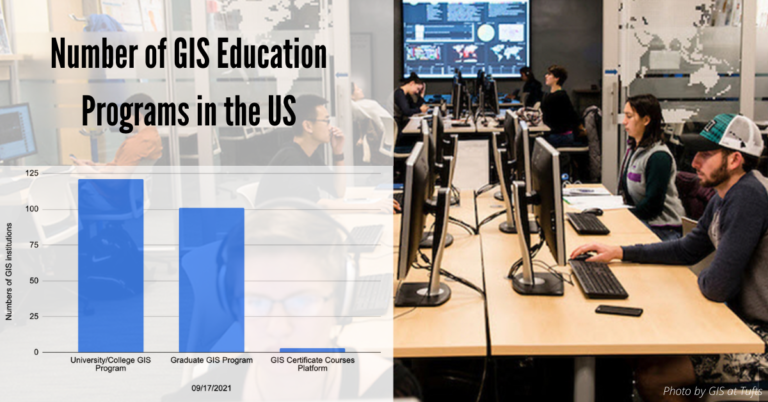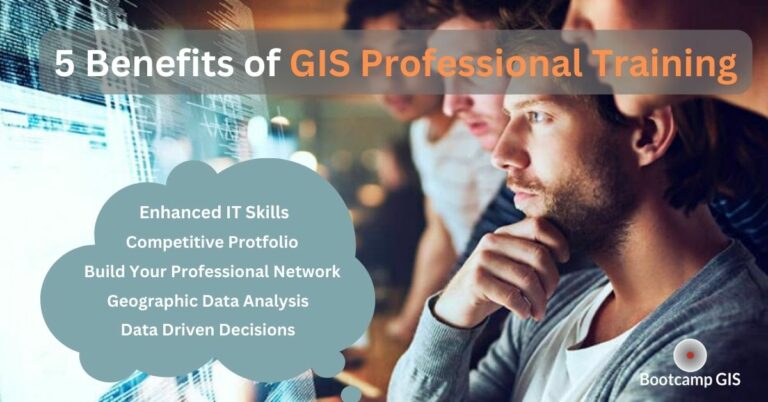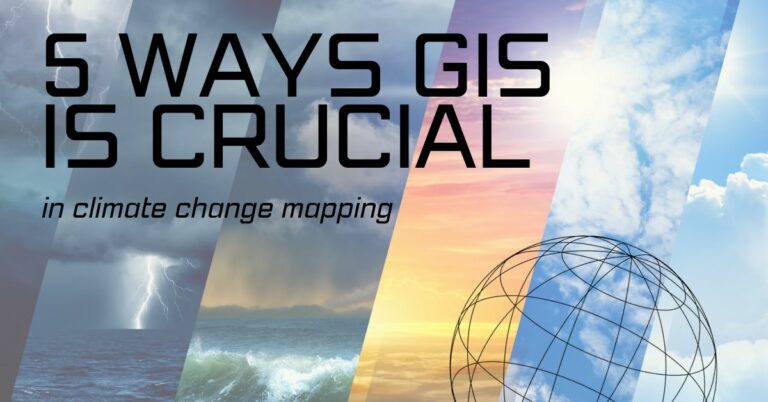
How to Learn GIS? (4 ways to learn this cool technology)
How to learn GIS?
Your phone is telling you where the nearest gas station is. You just used GIS. Geographic Information Systems (GIS), is a computer system that captures, stores, and displays any data tied to location. You see this in your google maps, weather map, smartphone apps, and most recently the COVID-19 maps. It is one of the Big 7 tech growth sectors that is expected to reach $14.5 million by 2025. If you are looking for an interesting discipline, it offers the chance for travel, fieldwork, software analysis, cloud architecture, drone data collection, and system integration. We have some tips to help you learn some of the tools and possibly redirect your career path to support meaningful decisions.
Read some good articles
Starting in the GIS field can be a lot easier when you’re informed about its advantages. It is a fast growing industry that is always developing new applications and increasing in market size. There are lots of posts and news sites to learn from. See ‘Why the GIS industry continues to grow’ on GIS Lounge as a good geospatial news site. Then there are articles, like Is a GIS certificate worth it?, that talk about the benefits of a GIS education can help, especially when you are new to the industry and thinking about investing in GIS education. If you want to see parallels between coding and GIS bootcamps, read Are GIS bootcamps right for me? You’ll find plenty of material describing this career path opportunity.
Join some social networks
Joining the most relevant social media platforms like Linkedin, Facebook and Twitter can get you updated information about the GIS industry. Articles are a good source of information but if you want to meet and talk to people, networking with other GIS enthusiasts can further your career path. Besides joining a social media platform, make sure you follow or know about GIS groups inside those platforms. There are many varieties of GIS groups depending on your interests in environmental, engineering, or emergency services. They keep you current about events, courses, news, etc. near you. Networking is important in any career field and in GIS is how you can get new job opportunities with the right certification on it.
Sign up for the virtual Esri User Conference (free this year)
Esri is the dominant software provider for the GIS industry as the developer of ArcGIS. This software works with overlapping layers that together forms a digital map. If you learn their software, then you have a skill that is employable in virtually every government organization in the U.S. and around the world. Each year they host an international conference in San Diego which is a wonderful learning and networking opportunity. But due to the pandemic, it has been offered only virtually for the last 2 years. The advantage for newbies is that you can register for the Esri UC for free and gain access to hundreds of presentations on how people are using GIS tools for a myriad of applications. This is a must-see learning opportunity for novices to experts. Even if you don’t catch the sessions live, you can view them all in replay.
Complete an applied GIS certificate program
You can pursue certificate programs or degrees in Geography at your local college. Alternatively, you can earn an online GIS certificate if you want to fit your learning around other commitments. Either way, we suggest finding an applied program since skills in technology are better learned by doing. Here is a list of Top Rated GIS Science programs. Else, you might just be looking for a lite commitment with a course or two. Some excellent project-based GIS classes offered by subject matter experts are an excellent way to learn. Video instruction is good for novices to experts and will teach you about ArcGIS, UAV’s, Python, and map dashboards.
How can I become a GIS analyst?
Starting GIS analyst I salaries are in the neighborhood of $40-$75k. So how can you get there? Take your skills and practice so that you continue to learn. Similar to software developers, every industry needs GIS analysts so find your interest area (e.g., environmental technologies, renewable energy, business). Do some networking, get an internship, and practice the craft of making maps, workflows, and applications. These skills are being sought after by major tech companies and government agencies. Once you land there, you’ll likely find a career in GIS to be very satisfying.







